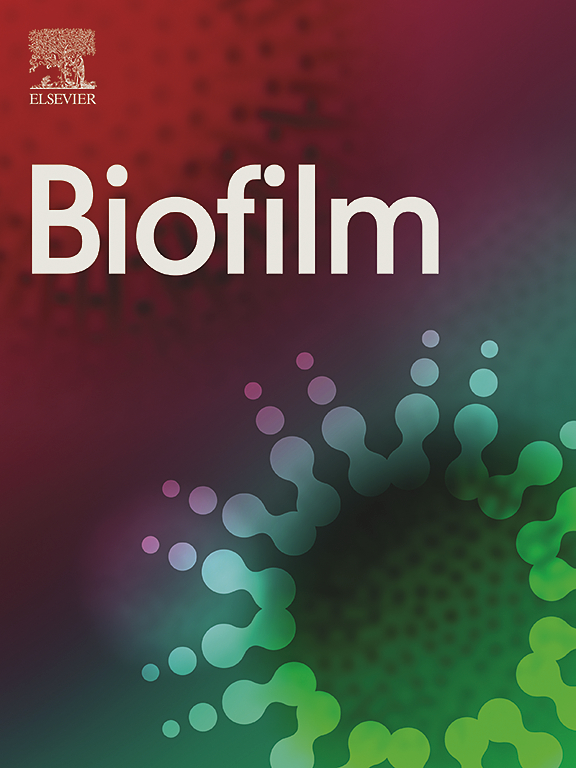生理和疾病中的转录因子 ELF4:分子作用和临床意义
IF 6.9
2区 医学
Q1 BIOCHEMISTRY & MOLECULAR BIOLOGY
引用次数: 0
摘要
转录因子 E74 类似于 ETS 转录因子 4(ELF4),是 ETS 家族的成员,在正常人的造血组织、卵巢、胎盘、结肠和某些病理细胞系中高表达。在正常生理过程中,ELF4 可调节成骨细胞、脂肪细胞和神经细胞类型的分化。它还对免疫系统的发育产生重要影响。然而,在病理条件下,ELF4 的功能会通过翻译后修饰、基因融合和复杂的信号串扰而失调。此外,ELF4 在癌症中是一把双刃剑,既有抑制肿瘤的作用,也有促进肿瘤的作用。具体来说,ELF4 在癌症转移、增殖和肿瘤微环境调控中发挥着关键作用。本综述深入概述了 ELF4 的分子结构和翻译后修饰。它还总结了ELF4在生理学和疾病中的特征,并特别关注其在肿瘤学中的意义。值得注意的是,这篇综述强调了 ELF4 作为预后生物标志物的潜力,突出了其临床相关性。最后,它讨论了ELF4尚未解决的问题和未来的研究方向。深入了解ELF4的生物学特性可促进其临床转化,并提供有前景的靶向治疗策略。本文章由计算机程序翻译,如有差异,请以英文原文为准。
Transcription factor ELF4 in physiology and diseases: Molecular roles and clinical implications
Transcription factor E74 like ETS transcription factor 4 (ELF4), a member of the ETS family, is highly expressed in normal human hematopoietic tissue, ovary, placenta, colon, and certain pathological cell lines. During normal physiological processes, ELF4 regulates differentiation in osteogenic, adipocyte, and neuronal types. It also exerts a critical impact on the development of the immune system. However, its function is dysregulated through posttranslational modifications, gene fusions, and complex signaling crosstalk under pathological conditions. Furthermore, serving as a double-edged sword in cancer, ELF4 exhibits both tumor-suppressing and tumor-promoting effects. Specifically, ELF4 plays a critical role in cancer metastasis, proliferation, and modulation of the tumor microenvironment. This review provides an in-depth overview of the molecular structure and post-translational modifications of ELF4. It also summarizes the hallmarks of ELF4 in physiology and diseases, with a particular focus on its significance in oncology. Notably, this review underscores the potential of ELF4 as a prognostic biomarker, highlighting its clinical relevance. Finally, it discusses unresolved questions and future research directions of ELF4. An in-depth understanding of ELF4 biology could facilitate its clinical translation and offer promising targeted therapeutic strategies.
求助全文
通过发布文献求助,成功后即可免费获取论文全文。
去求助
来源期刊

Genes & Diseases
Multiple-
CiteScore
7.30
自引率
0.00%
发文量
347
审稿时长
49 days
期刊介绍:
Genes & Diseases is an international journal for molecular and translational medicine. The journal primarily focuses on publishing investigations on the molecular bases and experimental therapeutics of human diseases. Publication formats include full length research article, review article, short communication, correspondence, perspectives, commentary, views on news, and research watch.
Aims and Scopes
Genes & Diseases publishes rigorously peer-reviewed and high quality original articles and authoritative reviews that focus on the molecular bases of human diseases. Emphasis will be placed on hypothesis-driven, mechanistic studies relevant to pathogenesis and/or experimental therapeutics of human diseases. The journal has worldwide authorship, and a broad scope in basic and translational biomedical research of molecular biology, molecular genetics, and cell biology, including but not limited to cell proliferation and apoptosis, signal transduction, stem cell biology, developmental biology, gene regulation and epigenetics, cancer biology, immunity and infection, neuroscience, disease-specific animal models, gene and cell-based therapies, and regenerative medicine.
 求助内容:
求助内容: 应助结果提醒方式:
应助结果提醒方式:


